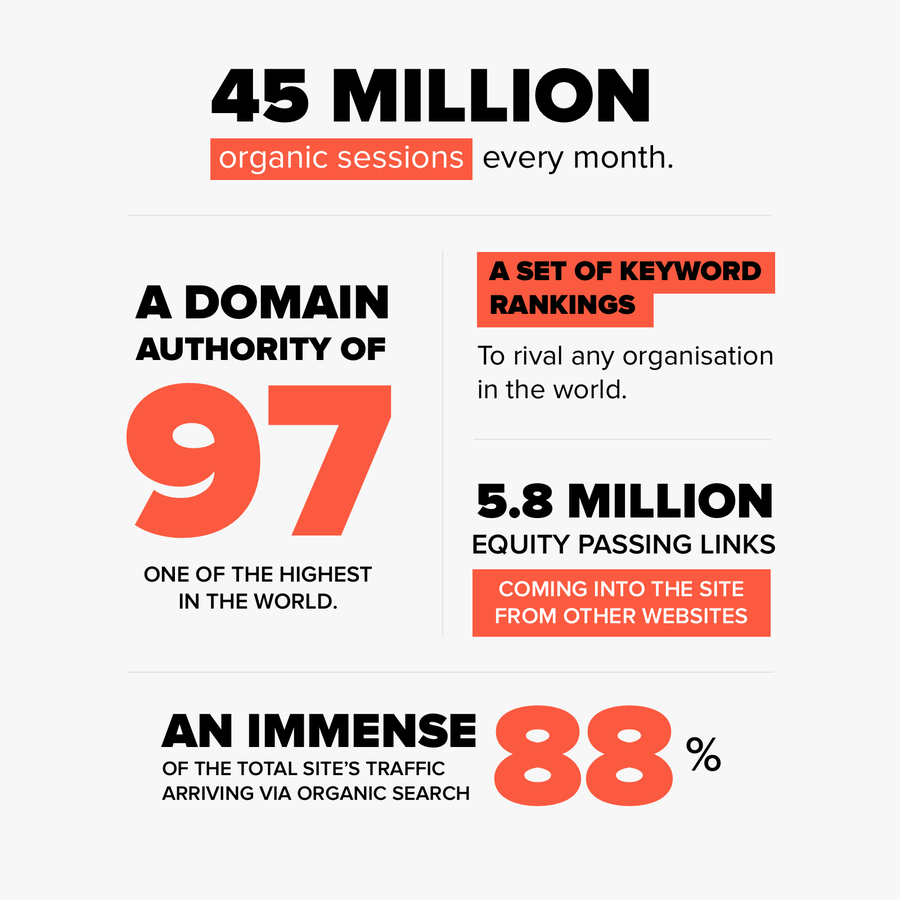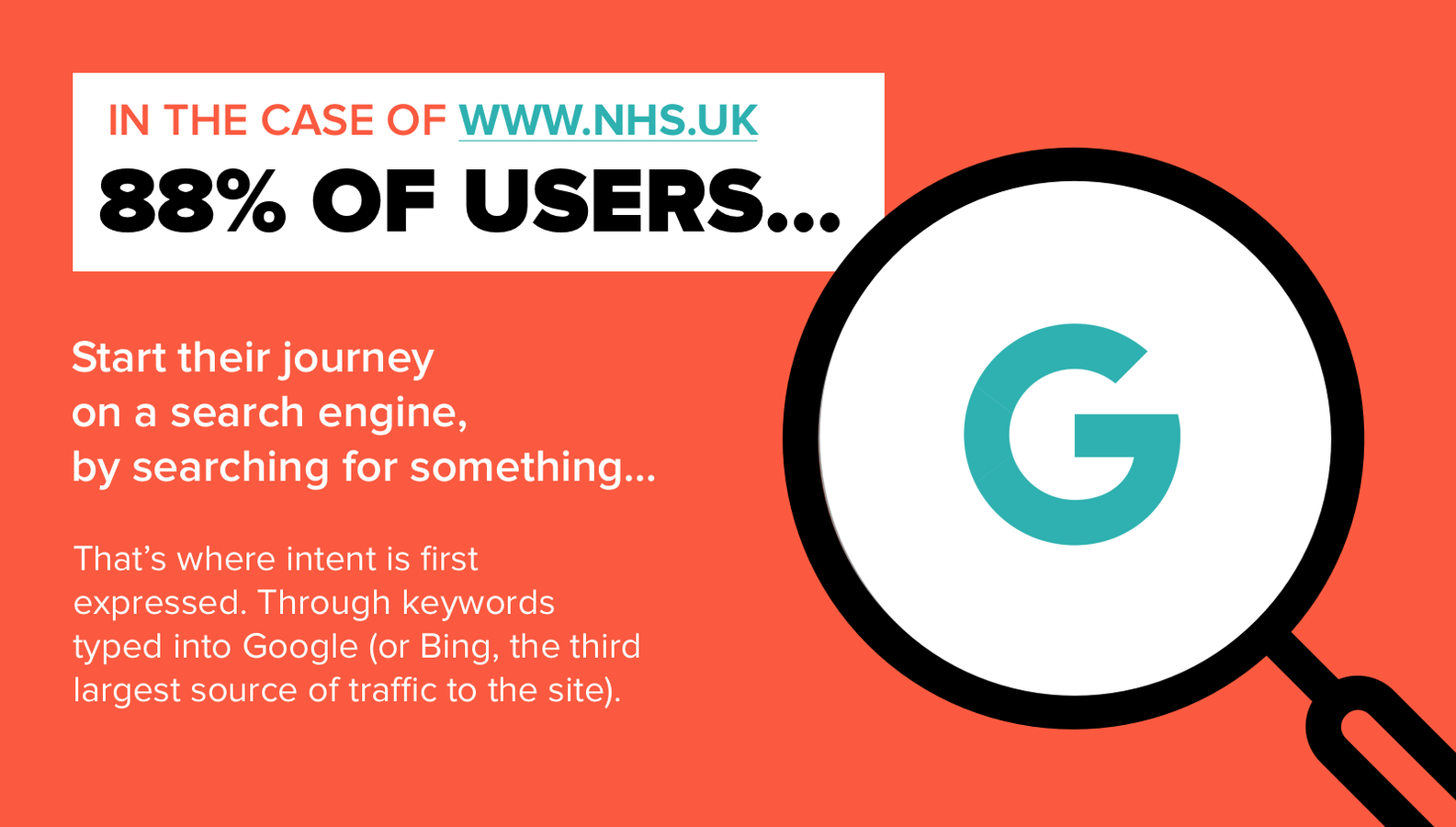Talking SEO with the NHS
The official website of the NHS—www.nhs.uk—is being transformed and the potential implications on the site’s SEO are significant. Torchbox ran an SEO workshop with the team behind the site, facilitating a day of discussion and debate about the organic search problems a move like this brings.
The website numbers are, to say the least, huge.

It’s tempting to think the site’s SEO is taking care of itself, so why tinker? Our approach is fundamentally opposed to this school of thought: such power needs dedicated attention and protection. Organic search is the overwhelming way users find the site.
Organic Search Content Implications
The site is in the middle of a phased content transformation period, underpinned by the NHS’s decision to migrate to the Wagtail CMS. A vast library of content is being rewritten, repurposed and republished—firstly on beta.nhs.uk for a staggered testing period before being published to the live site later this year.
What content stays? What goes? What similar content can be merged and combined? How should new content be rewritten and structured? These are common questions thrown up by all site migrations. With the organic numbers this particular site sees, they’re questions that need to be carefully thought through; debated and stress-tested in order to protect such a strong organic presence. They’re questions that we need to answer in a way that satisfies both the users on a site and the search engines that bring those users to the content in the first place.

Users vs. Search Engines
On the one hand, the site needs to deliver content rooted in solid, in-depth user research that squarely places the focus on the patient’s needs when they’re on the site. It needs to be structured in such a way as to get the user to the “action” part of their journey—whether that’s drinking more water and getting some rest or seeking urgent medical advice. And it needs to be maintainable for the site’s content editors: five pages that contain near-identical information take five times as long to maintain and update. Multiply that by the sheer number of conditions the site covers and the scale of a content manager’s task becomes formidable.
On the other hand, a site like www.nhs.uk needs to be structured and written (hello dedicated landing pages, careful internal linking, title tags, h1 tags, URL naming conventions, on-page keyword usage) in a way that is search-engine friendly to ensure users get to the site in the first place. A user’s journey doesn’t always begin on site, and in traditional user research testing, that can often be overlooked.

Resolving this tension requires us to remove the distance we often place between user-focused content and content written for search engines. Rather than think of an SEO-led content creation strategy as “chasing traffic”, sites need to start seeing search as the beginning of a user’s journey to task completion.
Content designed for search and content designed for users aren’t two separate entities—they’re the same thing.
The day’s other conversation was wide-ranging, as befits a site that serves such a vast user base. We discussed the value of voice search, social media’s contributing role to an organic search strategy, image search as an entry point to the site for users, Google’s plans to roll out in-SERP healthcare advice to the UK, whether there’s a need for a specific Bing-centred SEO strategy, engagement as a ranking factor, video content as an organic entry point to the site and how best to use structured data markup for medical information.
The day was as thought-provoking as it gets. With plenty of problems to consider, each conversation brings solutions a little closer. We’re looking forward to helping the NHS’s digital team take the next step.


